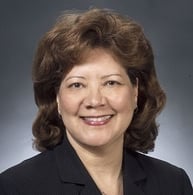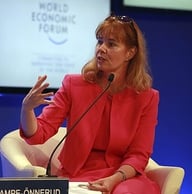March 8th is International Women's Day, so what better day to celebrate the contribution that women have made to the battery and charger industries?
Esther Takeuchi
As Ultralife are a battery developer in the medical industry, perhaps the most inspirational lady for us is Esther Takeuchi who invented small lithium/silver vanadium oxide batteries that could be used in the production of implantable cardiac defibrillators in the late 1980s. Her contribution to battery technology has been recognised at the highest level; with President Barack Obama presented her with the National Medal of Technology in 2009. Takeuchi is now focusing her efforts on new ways to power electric vehicles and other applications for the future.
Olga D Gonzalez-Sanabria

Around the same time as Takeuchi was inventing her defibrillator batteries, Olga D Gonzalez-Sanabria was making key contributions towards the creation of nickel-hydrogen batteries that store hydrogen gas in a pressurised cell. These batteries eventually powered the International Space Station, as they were able to be recharged tens of thousands of times. Although state-of-the-art at the time, nickel-hydrogen is one of the most expensive battery technologies on the market, so these batteries are now being replaced with Lithium-ion (a chemistry widely used at Ultralife).
Maria Helena Braga

The man to whom we owe so much, John B. Goodenough, the co-inventor of the Lithium-ion (Li-ion) battery worked with senior researcher Maria Helena Braga to produce glass electrolyte solid state batteries that have at least three times more energy density than the current Li-ion technology. Braga set the wheels in motion by approaching Goodenough with the initial prototypes that she made at university.
Christina Lampe-Önnerud

Also whilst she was at university, the lady widely known as ‘The Queen of Batteries’, Swedish inventor and entrepreneur Christina Lampe-Önnerud conceived a material to increase the power of lithium batteries. Ten years later, she formed her own company that produced lithium-ion batteries for small PCs. Ever the pioneer; in her latest venture she's developing a new battery design aimed at the electric car and power grid markets, which places a ceramic insert into an aluminium container.
Eesha Khare
An alternative to batteries, Eesha Khare made developments in the field of supercapacitors during her high school studies. Supercapacitors store energy electrostatically on the material’s surface with no chemical reactions but have been unable to compete with batteries due to having a lower energy density. Khare is paving the way for future adoption by creating a special nanostructure that looks to resolve this. Great market potential, not only is her battery small enough to fit into a mobile phone but it can fully charge the phone in under 30 seconds.
As you can see, women have and continue to play a vital role in battery development, contributing ideas that revolutionise the way portable power is used now and in the future. If you'd like more information on how we can assist with your battery needs, please
Image of Maria Helena Braga by GFDL, https://commons.wikimedia.org/w/index.php?curid=58498508
Image of Christina Lampe-Önnerud by World Economic Forum - Flickr: Forum Debate: Demystifying Asia's Entrepreneurs, CC BY-SA 2.0, https://commons.wikimedia.org/w/index.php?curid=21248799


